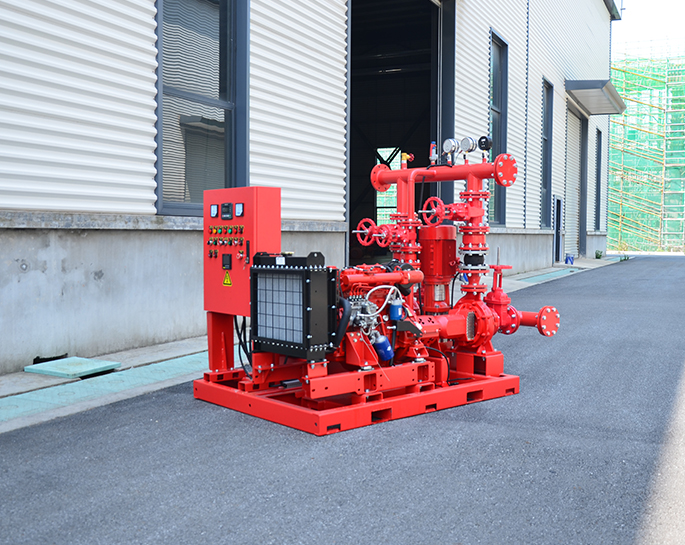How do jockey pumps contribute to water conservation in fire protection systems?
Apr 30, 2024
Share:
Jockey pumps play a critical role in maintaining the pressure within a fire protection system. These pumps continuously monitor and maintain the pressure in the system, ensuring that it stays within a specific range. By doing so, they prevent the main fire pump from turning on unnecessarily. This is important for water conservation in fire protection systems for several reasons:
1. **Preventing Leakage**: Fire protection systems often have pipes and fittings that may develop leaks over time. Maintaining the pressure in the system with the help of jockey pumps helps minimize the risk of leaks by keeping the system pressurized, reducing water wastage.
2. **Reducing False Alarms**: Jockey pumps help prevent small drops in pressure that might trigger the main fire pump unnecessarily. False alarms can result in significant water wastage if the main pump starts pumping water when there's no actual fire emergency.
3. **Optimizing Pump Operation**: Jockey pumps allow for better control and optimization of the main fire pump's operation. Instead of the main pump turning on and off frequently in response to minor pressure changes, the jockey pump maintains a stable pressure, reducing the overall energy consumption and water usage.
4. **Ensuring Readiness**: By continuously maintaining pressure in the system, jockey pumps ensure that the fire protection system is always ready to respond effectively to a fire emergency. This readiness is crucial for conserving water during an actual fire event, as it ensures that the system can deliver water promptly without wasting time on pump startup delays.
Overall, jockey pumps contribute to water conservation in fire protection systems by minimizing water wastage, reducing false alarms, optimizing pump operation, and ensuring system readiness for effective firefighting when needed.

1. **Preventing Leakage**: Fire protection systems often have pipes and fittings that may develop leaks over time. Maintaining the pressure in the system with the help of jockey pumps helps minimize the risk of leaks by keeping the system pressurized, reducing water wastage.
2. **Reducing False Alarms**: Jockey pumps help prevent small drops in pressure that might trigger the main fire pump unnecessarily. False alarms can result in significant water wastage if the main pump starts pumping water when there's no actual fire emergency.
3. **Optimizing Pump Operation**: Jockey pumps allow for better control and optimization of the main fire pump's operation. Instead of the main pump turning on and off frequently in response to minor pressure changes, the jockey pump maintains a stable pressure, reducing the overall energy consumption and water usage.
4. **Ensuring Readiness**: By continuously maintaining pressure in the system, jockey pumps ensure that the fire protection system is always ready to respond effectively to a fire emergency. This readiness is crucial for conserving water during an actual fire event, as it ensures that the system can deliver water promptly without wasting time on pump startup delays.
Overall, jockey pumps contribute to water conservation in fire protection systems by minimizing water wastage, reducing false alarms, optimizing pump operation, and ensuring system readiness for effective firefighting when needed.


.png)
.png)

.png)


